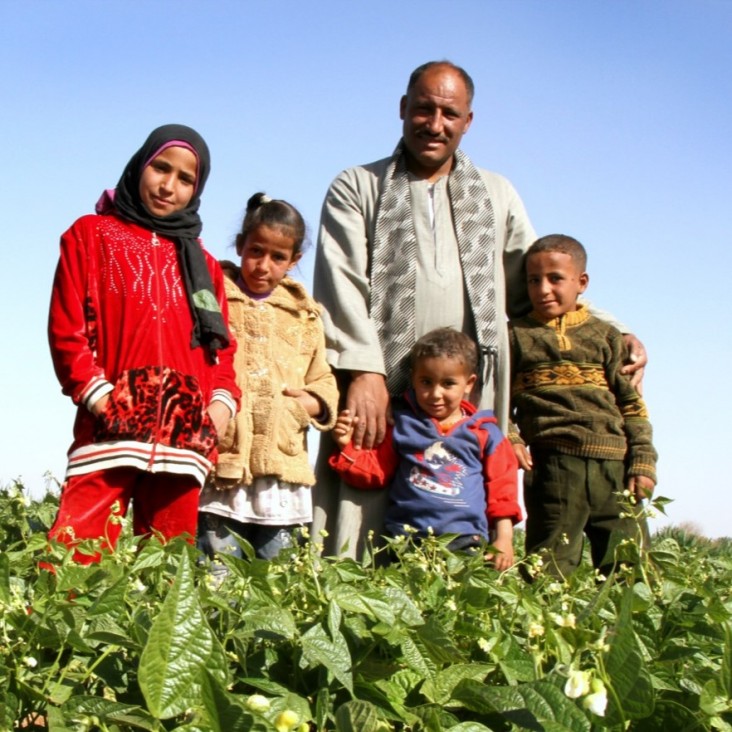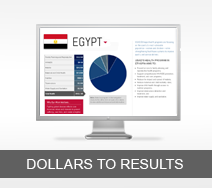
For nearly four decades, the American people have partnered with the people of Egypt to promote an environment where all groups in Egyptian society can lead healthy, productive lives.
USAID’s program in Egypt, totaling nearly $30 billion since 1978, has directly and fundamentally supported gains such as a reduction in infant and maternal mortality rates, improvement in reading ability in the early grades, and an increase in marketable skills – leading to jobs and lasting prosperity.
USAID’s programs in education, health, economic growth, and governance are contributing to stability and prosperity for Egyptians through accessible, effective, and accountable institutions. Our programs are giving future generations the tools to succeed and providing opportunities for Egypt’s large youth population as it enters higher education and the workforce. USAID is improving agriculture and water productivity and enhancing livelihoods in rural zones where poverty and lack of jobs, especially for youth and women, are all too common. We seek to enhance the contributions of government officials, civil society, communities, and individuals to build and strengthen institutions that meet the political and economic needs of the Egyptian people.
ECONOMIC GROWTH: USAID is strengthening the private sector to create more – and better – jobs, especially in the labor intensive agriculture and tourism sectors. USAID works with the people of Egypt and private sector partners to improve the policy and business regulatory environment, stimulate entrepreneurship and strengthen enterprises; improve the employability of Egypt’s youth; and provide support and financing for micro, small, and medium enterprises. USAID is providing training and tailored technical assistance to increase the exporting capacities of small and medium enterprises – including agribusinesses – in order to expand export markets, buyer contacts, and sales. In tourism, USAID works with local organizations to conserve Egypt’s rich cultural and natural heritage; these efforts also increase skills development and employment.
EDUCATION: USAID has helped the Egyptian government to scale up two successful pilot activities nationwide – one improves children’s ability to read in the early grades while the other improves science, technology, engineering, and mathematics instruction in high schools. Through innovative teacher training, curriculum development, education system decentralization, and policy reform, USAID activities contribute to improvements in the quality of education. USAID is focused on strengthening the vocational and higher education sectors and aligning the skills of graduates with market needs. Through the U.S.-Egypt Higher Education Initiative, USAID is increasing scholarship assistance for a diverse range of Egyptians, including women and economically disadvantaged students, to study in disciplines critical to Egypt’s economy such as business, science, technology, and engineering.
HEALTH: USAID’s programs enhance the quality of health services, improve technical and management capacity of healthcare workers, and support research and monitoring in key areas such as nutrition and infectious disease. To improve health and promote a stronger workforce, key programmatic areas include maternal, neonatal, and child health and nutrition and emerging and infectious disease detection and response.
GOVERNANCE: USAID is working in partnership with the Egyptian people to strengthen the administration of and access to justice, promote good governance, combat and prevent violence against women, combat trafficking in persons, and promote women's empowerment. Our work supports the commitment and accomplishments of the Egyptian people in their transition to an inclusive, representative government through activities that focus on transparent electoral processes, local government strengthening, and empowerment of marginalized groups to participate more fully in democratic processes.









Comment
Make a general inquiry or suggest an improvement.